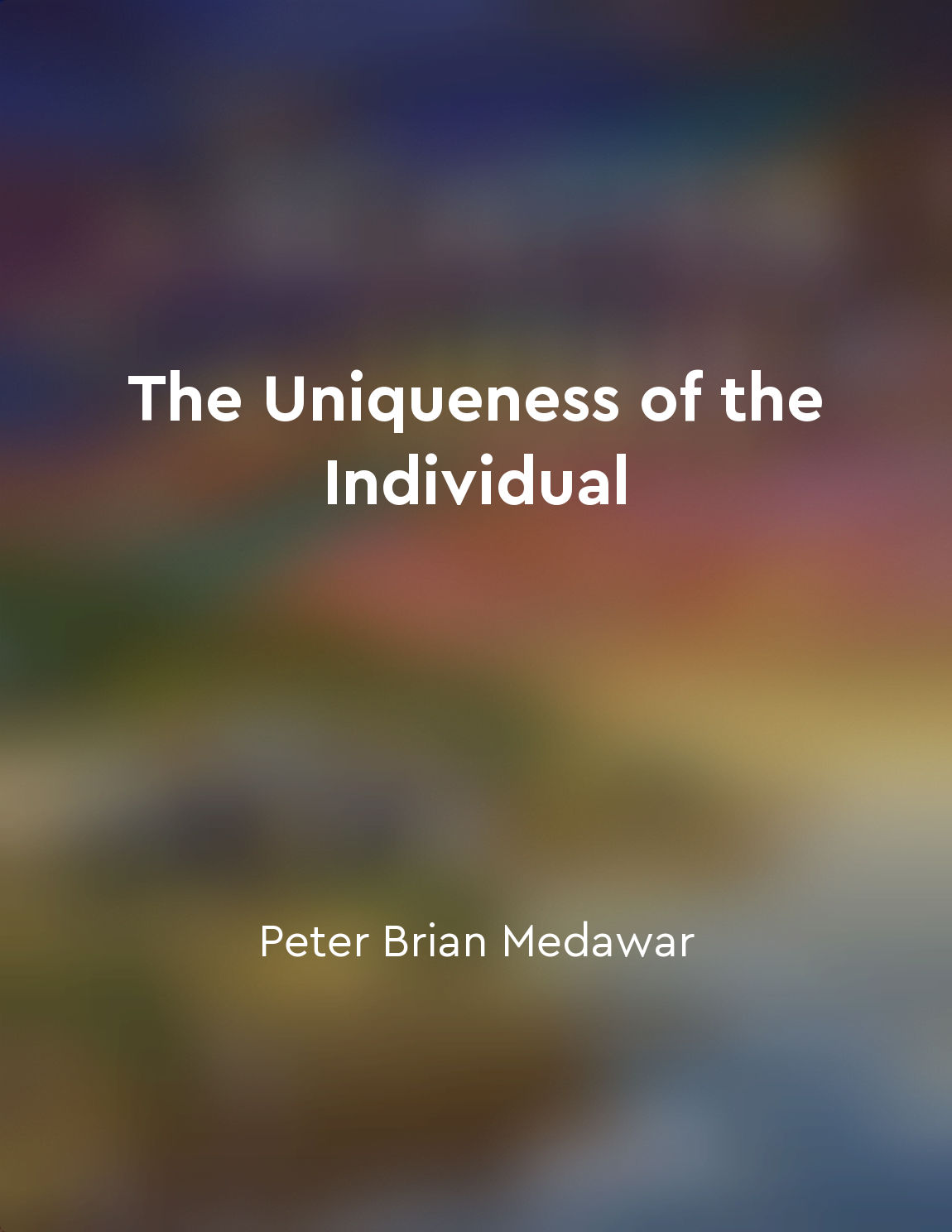Autonomy over one's life from "summary" of Utilitarianism and On Liberty by John Stuart Mill
Autonomy over one's life is the principle that individuals should have the freedom to make their own choices and decisions without interference from others. This includes the authority to decide how to live one's life, what activities to engage in, and what values to uphold. According to Mill, autonomy is essential for human flourishing and well-being. When individuals have the power to govern their own lives, they are more likely to pursue their own happiness and develop their own unique potential. In a society that respects autonomy, individuals are able to act according to their own wishes and desires, as long as they do not harm others. This principle is closely tied to the concept of liberty, which Mill argues is necessary for the progress of society. Autonomy allows individuals to think independently, express their opinions freely, and challenge prevailing norms and beliefs. Without autonomy, people are at risk of being coerced or manipulated by those in positions of power. Mill believes that autonomy is particularly important in the realm of morality and ethics. He argues that individuals should have the freedom to choose their own moral values and beliefs, rather than being compelled to adhere to the standards of society or religion. This does not mean that anything goes, however. Mill emphasizes that individuals should be guided by the principle of harm, meaning that they should not harm others in the pursuit of their own interests. Autonomy over one's life also encompasses the right to privacy and self-determination. Individuals have the right to control their own bodies and make decisions about their own health and well-being. This includes the right to refuse medical treatment, engage in consensual sexual activities, and make end-of-life decisions. In summary, autonomy over one's life is a fundamental principle that underpins Mill's philosophy of utilitarianism and liberalism. It is the idea that individuals should have the freedom to make their own choices and decisions, as long as they do not harm others. Autonomy is essential for human flourishing, self-realization, and the progress of society. By respecting autonomy, we create a more just and humane world where individuals can live according to their own values and beliefs.Similar Posts

Embrace constraints
Constraints are often seen as limitations, obstacles to be overcome in order to achieve success. But what if we were to view co...

Practice empathy and understanding
When we talk with our kids, it's important to show them empathy and understanding. This means putting ourselves in their shoes,...
Duty over inclination
The concept of duty over inclination is central to understanding moral philosophy, as it requires individuals to act according ...
Feminism is not about hating men
Many people believe that feminism is about hating men. It's not. Feminism is about justice. It's about equality. It's about rai...
We must align our thoughts with our values
In our pursuit of freedom, it is essential that we reflect on our values and ensure that our thoughts are in alignment with the...

Human nature is characterized by a blend of rationality and instinctual drives
Human nature is a complex interplay between rationality and instinctual drives. Rationality, the ability to reason and make log...
Morality is based on rational reflection
In the realm of morality, it is crucial to recognize that our actions must be guided by rational reflection rather than mere in...
Love and compassion are antidotes to fear
Fear is a natural response to the uncertainties and dangers of the world. It is a powerful emotion that can drive us to protect...

Social interactions influence individual development
The development of an individual is greatly shaped by the social interactions they engage in throughout their life. These inter...
